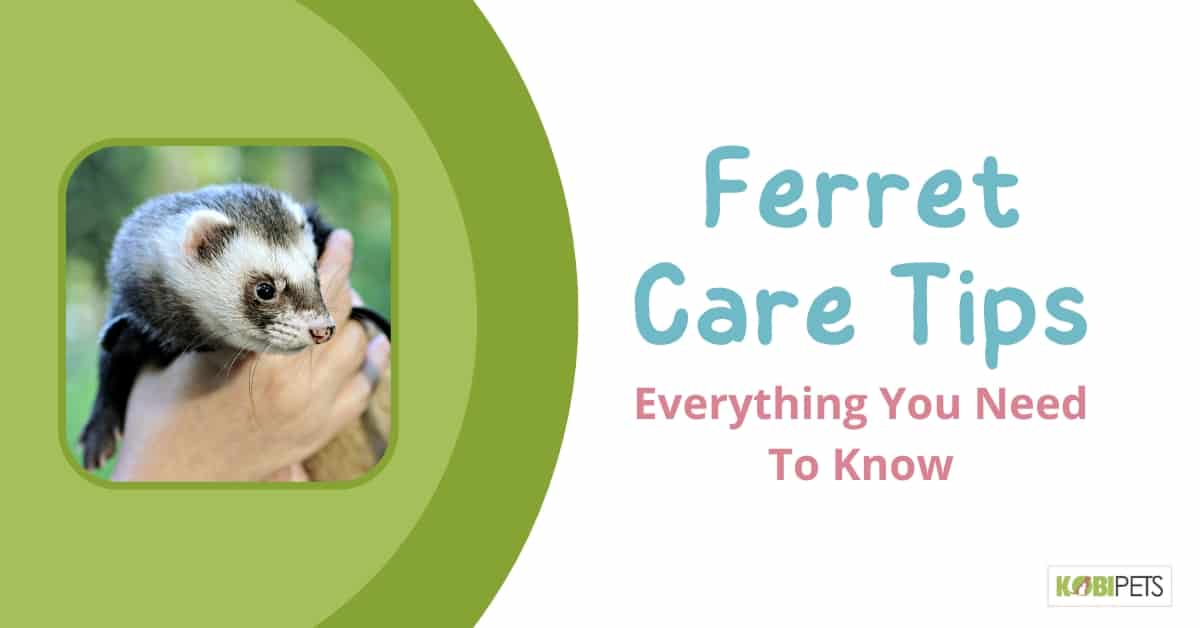
It is essential to provide your ferret with day-to-day sustenance, as well as promote better overall wellness. Knowing the types of food suitable for their unique dietary needs can help to keep them healthy and happy. Meat-based diets, dry foods like kibble, and occasional treats should all be included in a balanced diet for your ferret.
Make sure to also provide easy access to fresh, clean drinking water to keep them hydrated! Regular check-ups with a veterinarian are essential for ferret care and help ensure your furry friend remains healthy and happy.
In this blog post, we will discuss all the important aspects of ferret care – from temperature management and enrichment activities to nutrition and hydration, as well as health and wellness, training, and bonding.
Housing and Environment
Ferret cages
When housing and providing an environment for your ferret, having the right cage is essential. A good ferret cage should be long enough to provide ample space for play, yet small enough to allow easy caretaking and cleaning duties.
The cage should also take into account ventilation, access points, lighting fixtures, and the overall safety of your ferret. While the choice of material is largely dependent on personal preference, such as whether you prefer wire or plastic casing, all cages must go through rigorous safety checks to ensure they are safe and secure for ferrets.
| Requirement | Description |
|---|---|
| Size | Minimum cage size of 36” in width, 24” in depth, and 18” in height with the ability to expand. |
| Design | Mesh or solid sides, with a solid floor and removable tray for easy cleaning. Multiple levels/tiers are ideal as ferrets are natural climbers, also look out for wider ramps between levels and shelves to provide them with ample room to move around. |
| Accessories | Provide plenty of hiding spaces, chew toys, and tunnels for exercise. Soft material to line the bottom and hammocks or beds to snuggle up in during the day (that can be easily washed). Must include litter box too. |
| Maintenance | Need regular cleaning, so choose the one so you can easily access all parts for scrubbing. Some may require occasional repairs due to chewing damage from your ferret so check the material used is sturdy and made from a durable material like steel wire mesh which prevents escape attempts. |
Bedding and litter options
There are many things to consider when choosing the best bedding and litter for your ferret. While most pet owners opt for comfy bedding like fleece or a soft blanket, these materials may encourage nesting behavior in ferrets.
You’ll want to opt for materials that promote better air circulation, such as straw or aspen chips. Additionally, litter products made from recycled newspaper pellets are also a great option, as they’re less likely to cause respiratory irritation than clay-based litters.
Finally, ensure that all bedding and litter are frequently changed. Ferrets can be prone to developing upper-respiratory infections if their living area doesn’t stay clean and free of allergens.
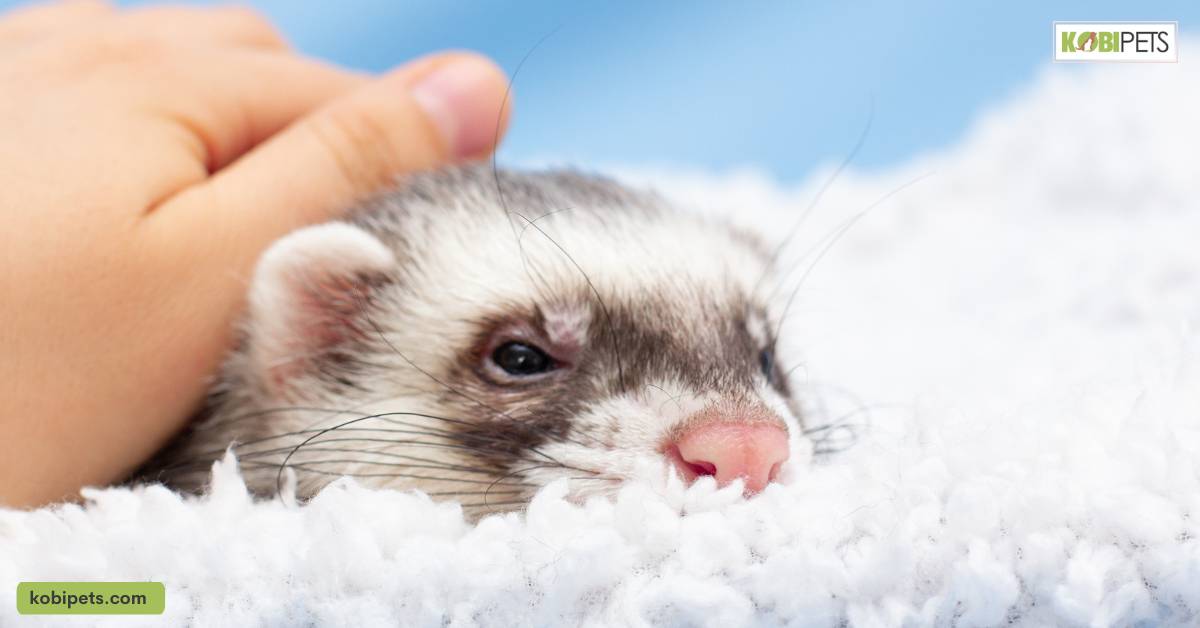
Temperature control
Temperature control is an important part of caring for ferrets. At least 18 to 22 degrees Celsius (65 to 72 degrees Fahrenheit) is recommended in order to keep your ferret healthy and comfortable. If temperatures rise too high, your pet may become overheated, leading to potential issues such as vomiting and difficulty breathing.
In winter, a heater or heating pad should be used to keep the temperature within the optimal range. Window drafts can also lower temperatures dramatically so it is important to be aware of this and take the necessary steps to prevent chilly conditions.
Furthermore, providing lots of snuggle spots, such as blankets or pillows and bedding are great ways for your ferret to stay warm in the colder months. Taking care of your ferret’s temperature levels is not only easy but absolutely essential in ensuring their well-being and comfort.
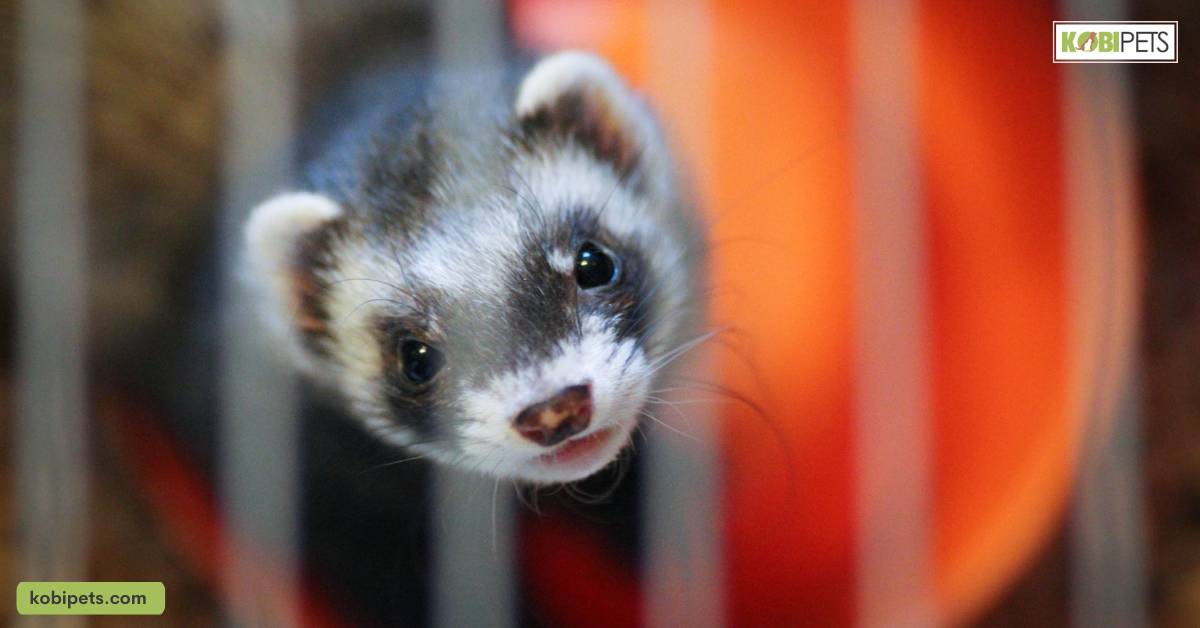
Enrichment activities
Ferret care can be made even more enjoyable for you and your furry companion when you provide enrichment activities. These activities are designed to stimulate their natural behavior and provide mental stimulation.
Activities like hide-and-seek, tubing tunnels, or treat puzzles are easy ways to give your ferret the opportunity to explore its curiosity and exercise both body and mind. Simple toys like paper bags, cardboard boxes, or towel rolls also provide new textures and objects for them to interact with safely!
Environmental changes that involve rearranging their cage doors, adding climbing structures, or simply choosing different colors of bedding can help to keep things interesting too. All of these activities serve as a great way to enrich their environment, cap off the day with a little playtime, reduce boredom, and create positive associations for your ferret.
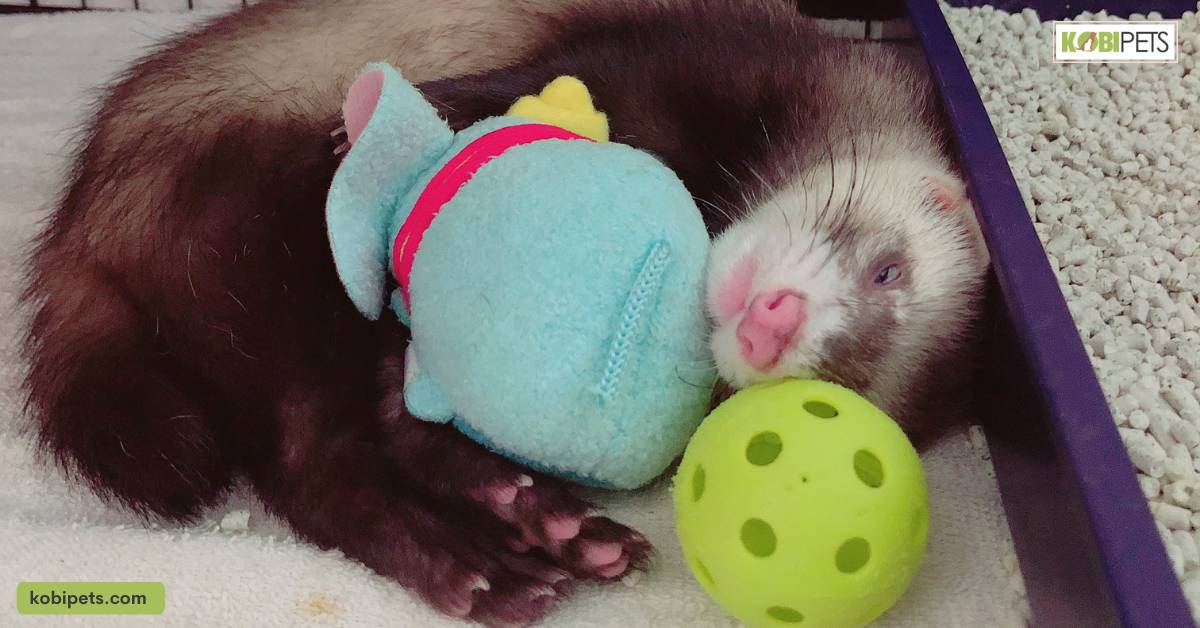
Feeding and Nutrition
Types of food for ferrets
Feeding and nutrition are of the utmost importance when it comes to ensuring a long, healthy life for your ferret. Knowing the types of food suitable for their unique dietary needs can help to provide your pet with day-to-day sustenance, as well as promote better overall wellness.
To help you on your quest to make sure that your ferret receives the perfect balance of nutrition in its diet, this article will take a detailed look at the best types of food available that should be considered when planning out a meal plan for your furry friend.
- Meat-Based Diets: Meat-based diets are the most common type of food for ferrets and should comprise the majority of their diet. These include poultry, fish, and some types of red meat to provide them with the necessary nutrients they need to stay healthy.
- Dry Foods: Dry foods like kibble can help to supplement their diet, as well as provide them with additional vitamins and minerals. Try to avoid foods that contain too much sugar or artificial colors and flavors, as these are not suitable for ferrets.
- Treats: Ferrets enjoy occasional treats like small pieces of fruit or vegetables, birdseed cakes, or even a bit of cooked egg or chicken. Treats should only make up a small portion of their diet and never replace regular meals.
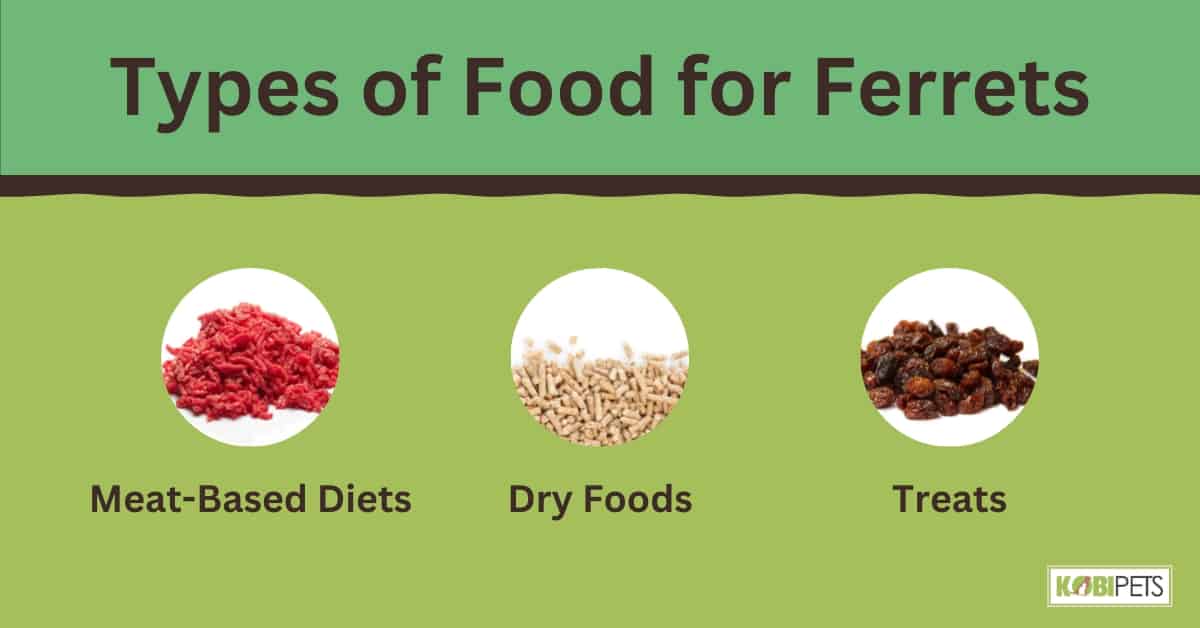
Types of Food for Ferrets
Portion sizes and frequency
Knowing the proper portion sizes and frequency for ferret care is essential in keeping your pet happy and healthy. Though ferrets are small animals, they need plenty of high-quality food and fresh water daily to avoid malnutrition. A good rule of thumb is to feed a ¼ cup of dry kibble per day, split into two separate meals.
For snacks or treats, no more than 1 teaspoon per meal is recommended. Fresh vegetables can also make a nutritious addition to your furry friend’s diet, but only offer them occasionally as an additional health benefit – too much or too often can cause nutritional imbalances as well as digestive problems.
Regularly cleaning and replacing their food bowls will help keep your ferret from succumbing to diseases like ECE (Epizootic Catarrhal Enteritis), so don’t forget that important task when caring for your beloved pet.
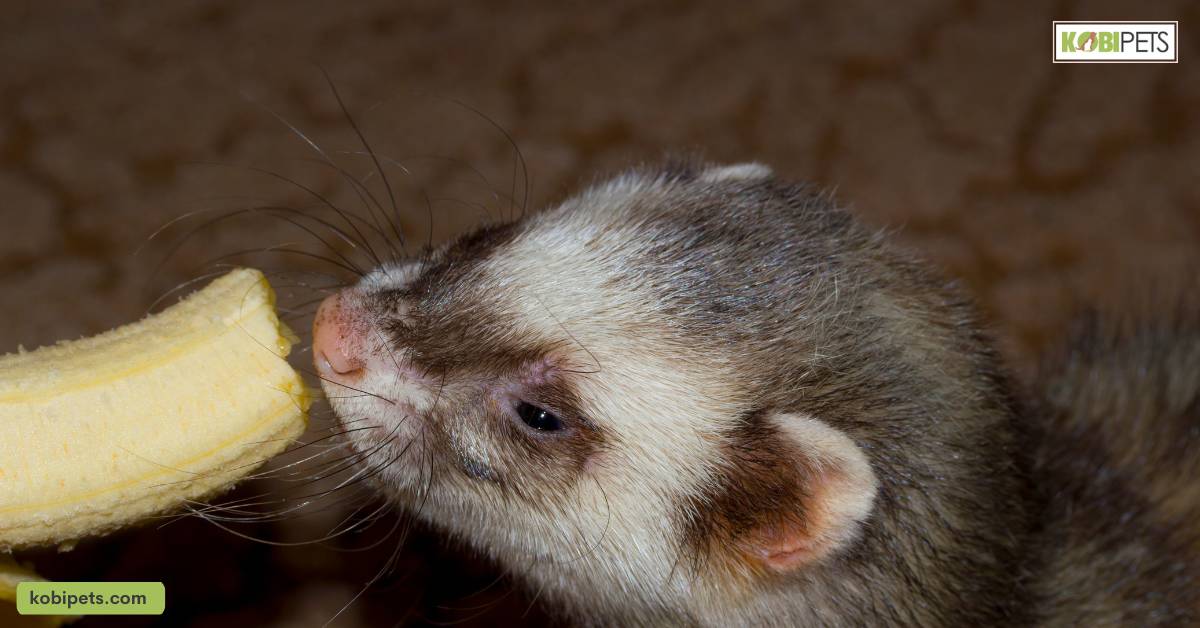
Hydration and water sources
Proper hydration is essential for the overall health and well-being of ferrets, as water makes up roughly 70 percent of an animal’s body weight. Unfortunately, many ferret owners are unaware of the best ways to keep their pets hydrated and unfortunately, this can lead to the onset of serious issues.
Providing easy access to fresh, clean drinking water and ensuring that it is changed regularly will help ensure your ferret stays healthy. Some owners find that different types of water containers work better for their animals, such as suspended bottles or dishes with low rims – this allows your ferret to drink naturally instead of awkwardly reaching into a bowl.
In addition, providing veggies and fruits with high water content (such as cucumbers, carrots, or apples) should also be included in their diet as an effective source of hydration. Knowing how to keep your pet properly hydrated is just one way you can provide the best care for your ferret!
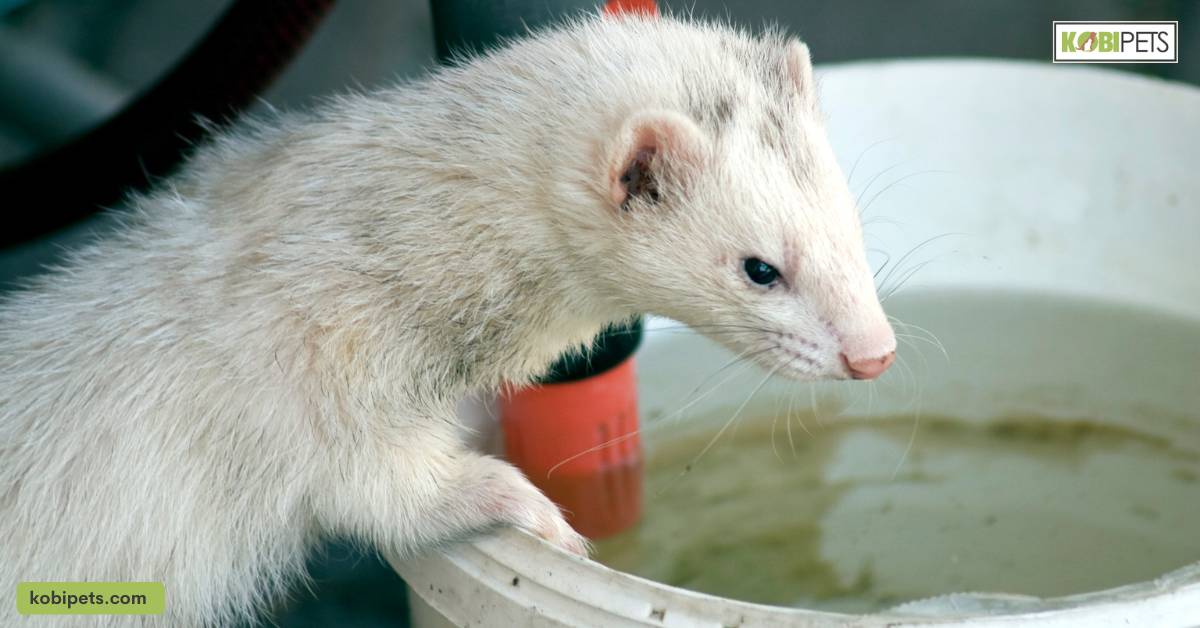
Health and Wellness
Regular check-ups and vet visits
Regular check-ups with a veterinarian are essential for ferret care. An annual physical examination will help ensure your ferret is healthy, aiding in the detection and prevention of any possible illnesses or other health concerns.
During the vet visit, the doctor will complete an overall physical examination, checking your ferret’s nose and eyes, ears, teeth and gums, skin, coat, and nails, as well as internal organs such as heart rate and lung sounds. Vaccinations may also be recommended by your veterinarian at the visit to protect your furry friend from potential diseases.
Drawing blood may also be necessary in order to test for parasites or other more serious issues that could challenge a ferret’s long-term health. The veterinarian will discuss with you anything that needs immediate attention or treatment for your pet along with any preventive measures that can be taken to ensure he or she remains healthy and happy.

Parasite control and preventative measures
When it comes to ferret care, parasite control, and preventative measures are essential for any ferret owner. Routine deworming and flea treatments should be performed regularly in order to ensure that a ferret’s health is kept in check.
A vet should always be consulted to determine the best treatment schedule, depending on the individual pet’s needs. Regularly bathing your ferret with commercial shampoos will keep their fur clean and free of parasites as well. Keeping litter boxes and bedding clean can also help to reduce or eliminate parasites that could otherwise fester if not addressed properly.
Additionally, ensuring that diets are balanced with necessary vitamins and minerals will help strengthen the immune system of your ferret which can help protect them from parasites. All these preventative measures work together to provide a solid barrier against any potential parasites.
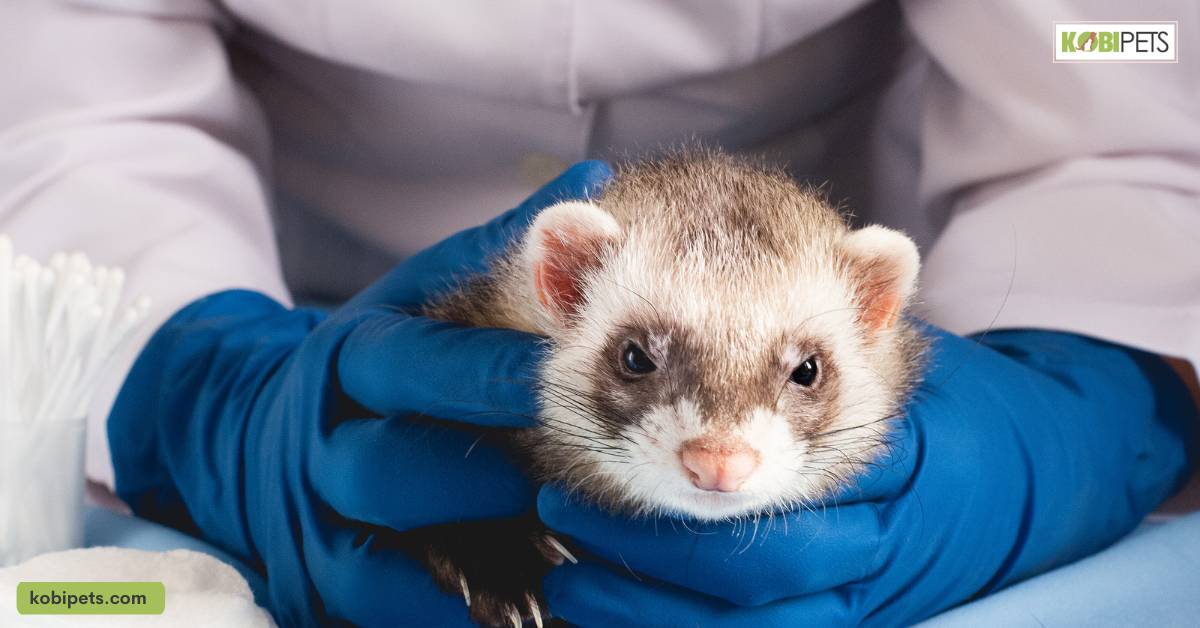
Grooming and Hygiene
Regular grooming and hygiene for your ferret are essential for pet care. This can include regular brushing, occasional baths, trimming nails, and cleaning their ears. When brushing your ferret’s coat, it should be done gently but thoroughly, and look to see if they may need any matted areas brushed out.
Additionally, ferrets rarely need a full bath and will usually just require tidying around their face, feet, tail base, or any areas of their body where there is a build-up of oils. Nail trimming should also form part of their routine care as this helps to stop claws from becoming too long and sharp while keeping them comfortable while moving around.
Lastly, regular ear cleanings help by removing wax buildup which aids in good hearing as well as helping to prevent ear infections. By taking the time to groom and clean your pet ferret regularly, you can ensure they remain healthy and happy for many years to come.
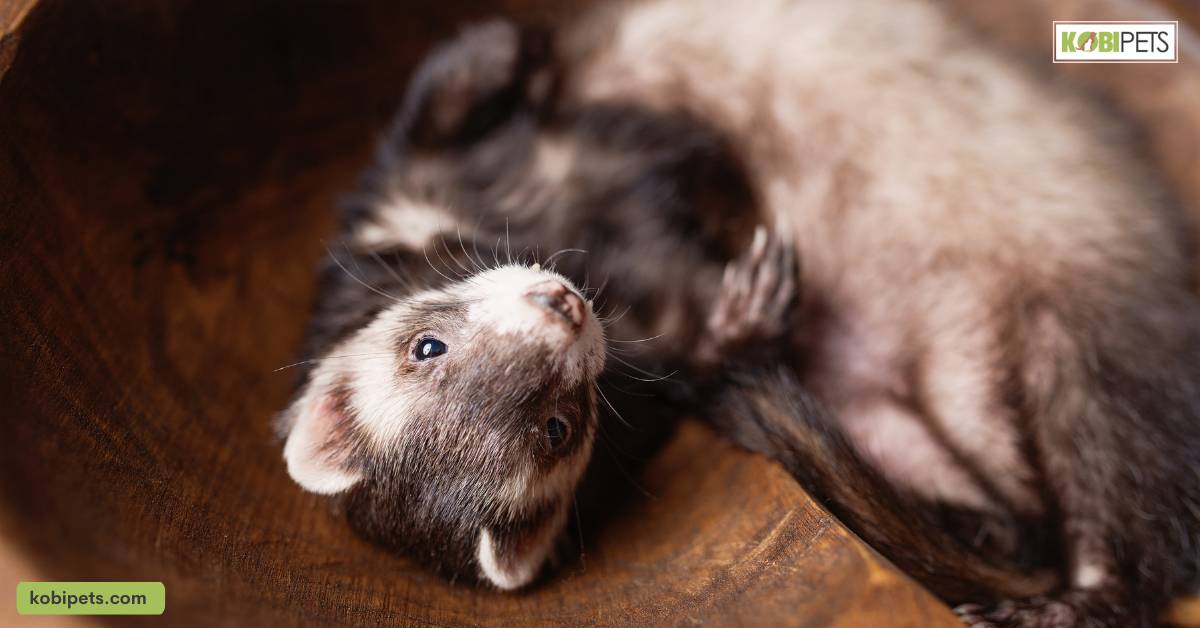
Training and Socialization
Potty training
Potty training a ferret can be time-consuming but is an essential part of ferret care. It helps them to understand their environment and become accustomed to living in it. This socialization process is important as it encourages appropriate behavior in the home and adapts them to human contact.
It also helps limit mess and allows for smoother cleanups when accidents do happen. To potty train, a ferret, give them access to a litter box in an uncluttered area with a soft, absorbent material that has been scented with natural ferret odor removers or bouillon cubes. Reinforce use by using verbal commands or treats when they’ve used the litter box appropriately.
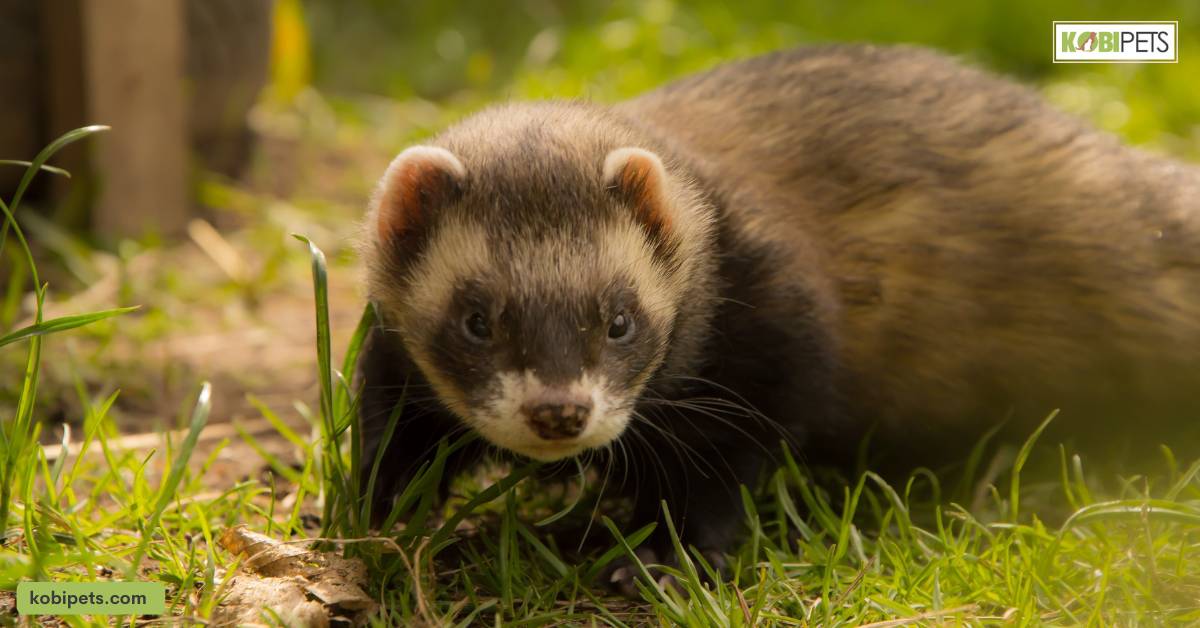
Ferret personalities and socialization
Ferret personalities and socialization play an important role in providing ferrets with a healthy and happy life. Ferrets are intelligent, curious, and active animals who can become easily bored if they are not mentally stimulated.
To ensure a good quality of life, it is essential to support your ferret’s natural behavior while teaching valuable life skills such as litter box training and proper socialization. Through patience and consistency, along with positive reinforcement, you can teach your pets basic commands that can help create a peaceful home for you both to share.
While some ferrets might take longer than others to learn the desired behaviors, taking the time to understand their individual needs will lead to successful training.
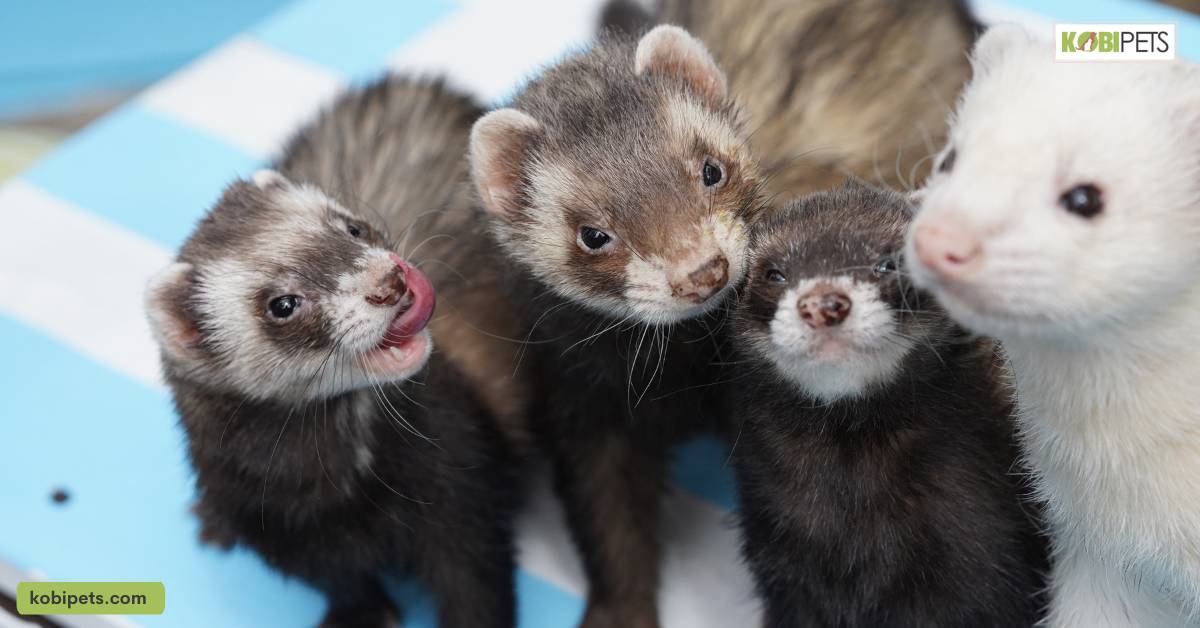
Bonding with your ferret
Establishing a strong bond with your ferret is vital to successful ferret care and training. When you spend time playing, snuggling, and bonding with your ferret it will build mutual trust and help you as an owner to better understand their individual behaviors and needs.
Developing this understanding can lead to a much more rewarding experience for both you and your beloved pet. When your ferret feels secure, safe, and loved they are more likely to be open to bonding activities such as reward-based training which helps promote socialization through positive exposure to new environments, people, animals, and objects.
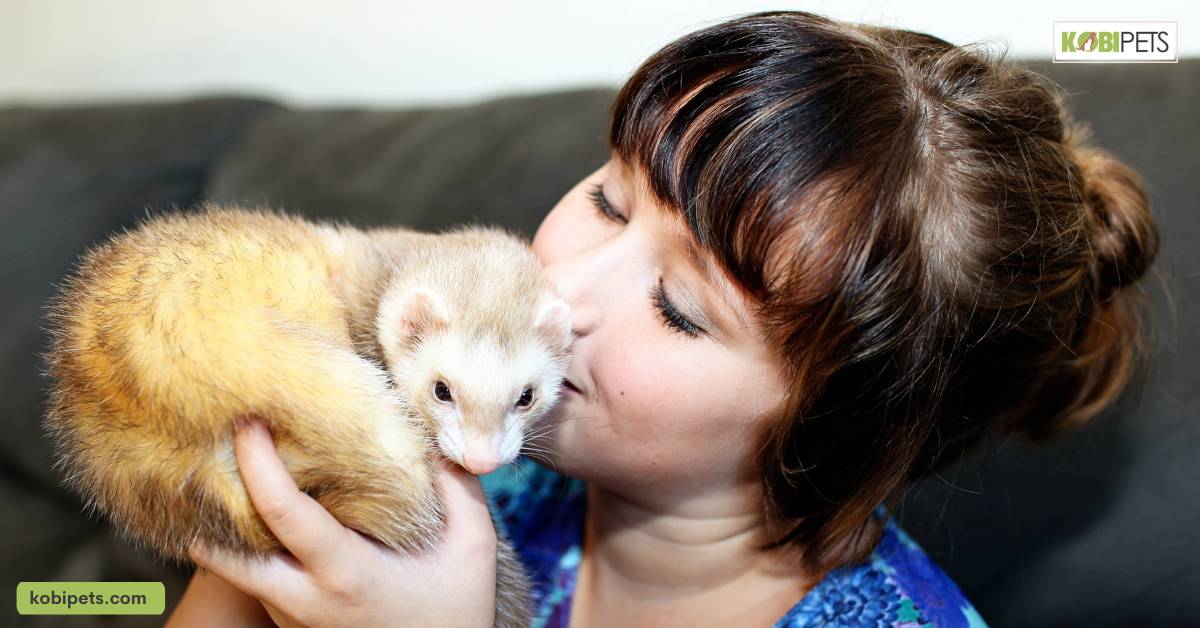
In Conclusion
Ferret care is a rewarding experience, with benefits that can be shared by both pet owners and their furry friends. Knowing the basics of ferret care – including diet and nutrition, hydration, grooming and hygiene, health and wellness, training and socialization, and bonding activities – will help ensure your ferret enjoys a long and healthy life.






